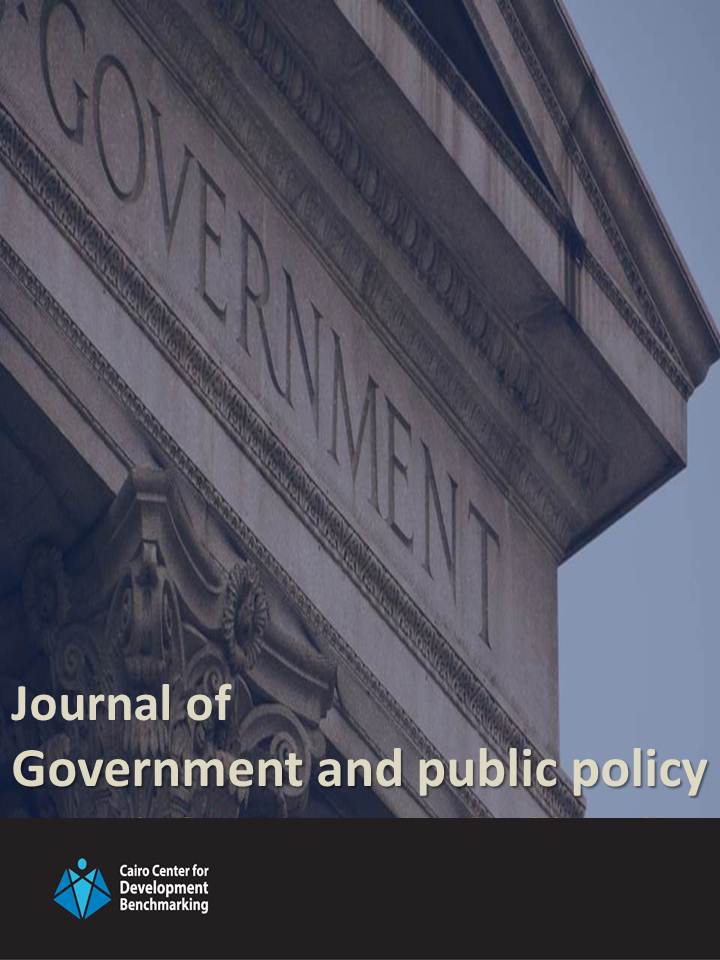
Journal of Government and Public Policy (JGPP)
ISSN: 24013/2016
DOI: 10.22218/JGPP
a peer-reviewed, open access journal that publishes original research papers as well as review papers and studies in public policies and governmental affairs. (JGPP) devoted to share knowledge, theories and concepts to significant political, economic, social issues and to reveal practice of government and the ways in which public policies are made.
(JGPP) covers a wide range of topics including:
The following is the editorial workflow that every manuscript submitted to the journal undergoes during the course of the peer-review process.
Once a manuscript is submitted, it will be reviewed by the journal’s editorial office to ensure that it is suitable to go through the normal peer review process. Once this is done, the manuscript is sent to an appropriate Editor based on the subject of the manuscript and the availability of the Editors. All manuscripts shall be handled by an Editor who does not have any potential conflict of interest with any of the manuscript’s authors.
If the Editor finds that the manuscript may not be of sufficient quality to go through the normal peer review process, or that the subject of the manuscript may not be appropriate for the journal’s scope, the manuscript shall be rejected with no further processing.
If the Editor finds that the submitted manuscript is of sufficient quality and falls within the scope of the journal, they should assign the manuscript to a number of external reviewers, provided that no conflict of interests exists between these reviewers and the manuscript’s authors. The reviewers will then submit their reports on the manuscripts along with their recommendation of one of the following actions to the Editor:
When all reviewers have submitted their reports, the Editor can make one of the following editorial recommendations:
If the Editor recommends “Publish Unaltered,” the manuscript will undergo a final check by the journal’s editorial office in order to ensure that the manuscript and its review process adhere to the journal’s guidelines and policies. Once this is done, the authors will be notified of the manuscript’s acceptance, and the manuscript will appear in the Articles in Press section of the journal’s website.
If the Editor recommends “Consider after Minor Changes,” the authors are notified to prepare and submit a final copy of their manuscript with the required minor changes suggested by the reviewers. The Editor reviews the revised manuscript after the minor changes have been made by the authors. Once the Editor is satisfied with the final manuscript, the manuscript can be accepted.
If the Editor recommends “Consider after Major Changes,” the authors are expected to revise their manuscript in accordance with that recommendation and to submit their revised manuscript in a timely manner. Once the revised manuscript is submitted, the original reviewers are asked to review it. Along with their review reports on the revised manuscript, the reviewers make a recommendation which can be “Publish Unaltered,” “Consider after Minor Changes,” “Consider after Major Changes,” or “Reject.” Then, the Editor can make an editorial recommendation which can be “Publish Unaltered,” “Consider after Minor Changes,” or “Reject.”
If the Editor recommends rejecting the manuscript, the rejection is immediate. Also, if the majority of the reviewers recommend rejecting the manuscript, the rejection is immediate.
The editorial workflow gives the Editors the authority to reject any manuscript because of inappropriateness of its subject, lack of quality, or incorrectness of its results. The Editor cannot assign himself/herself as an external reviewer of the manuscript. This is to ensure a high-quality, fair, and unbiased peer-review process of every manuscript submitted to the journal, since any manuscript must be recommended by one or more (usually two or more) external reviewers along with the Editor in charge of the manuscript in order for it to be accepted for publication in the journal.
The name of the Editor recommending the manuscript for publication is published with the manuscript to indicate and acknowledge their invaluable contribution to the peer-review process and the indispensability of their contributions to the running of the journals.
The peer-review process is single blinded; that is, the reviewers know who the authors of the manuscript are, but the authors do not have access to the information of who the peer reviewers are. Without the significant contributions made by these researchers, the publication of the journal would not be possible.